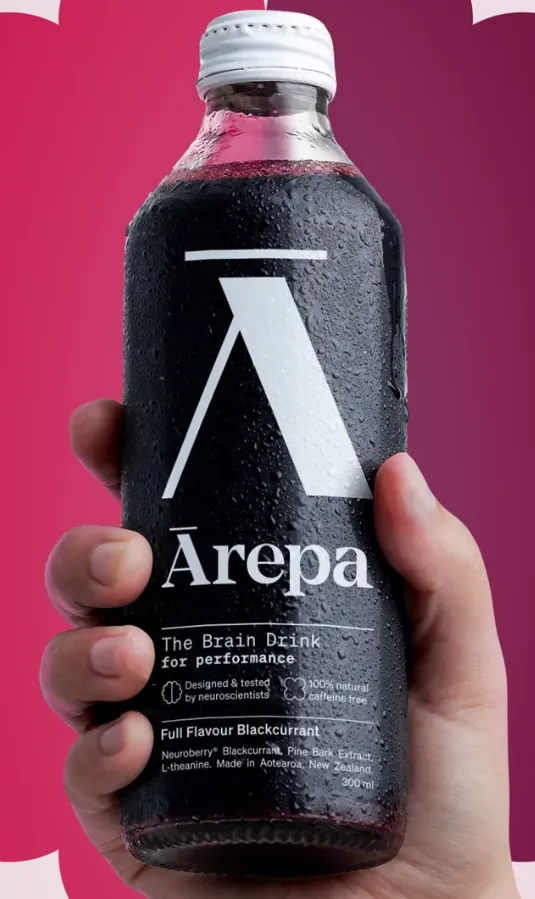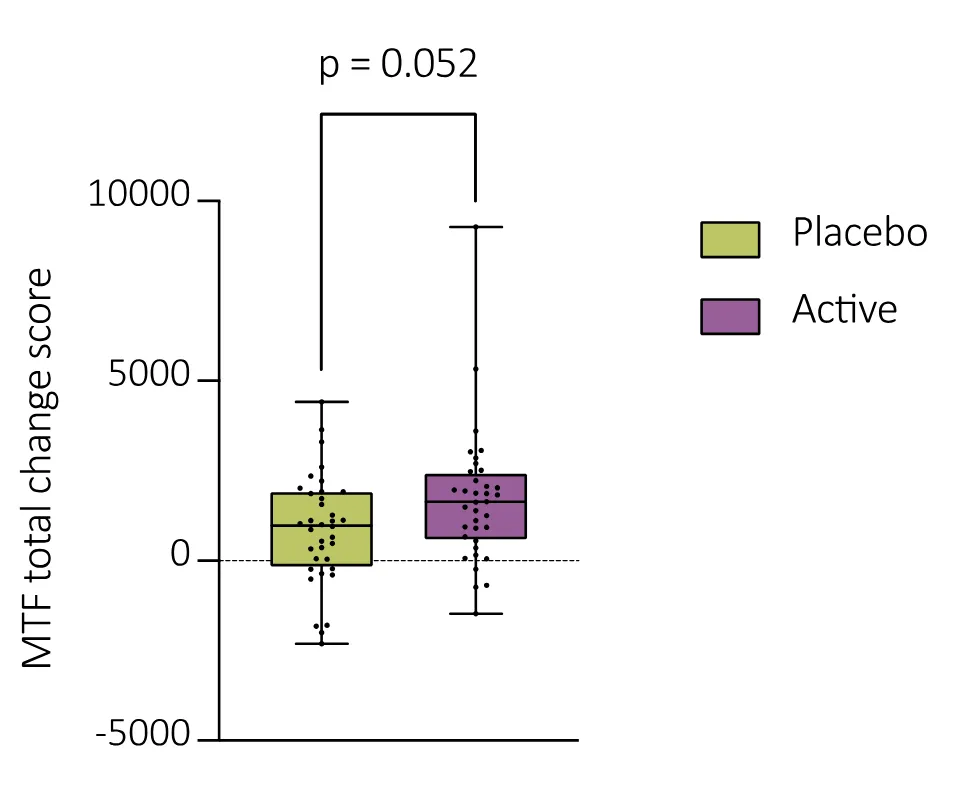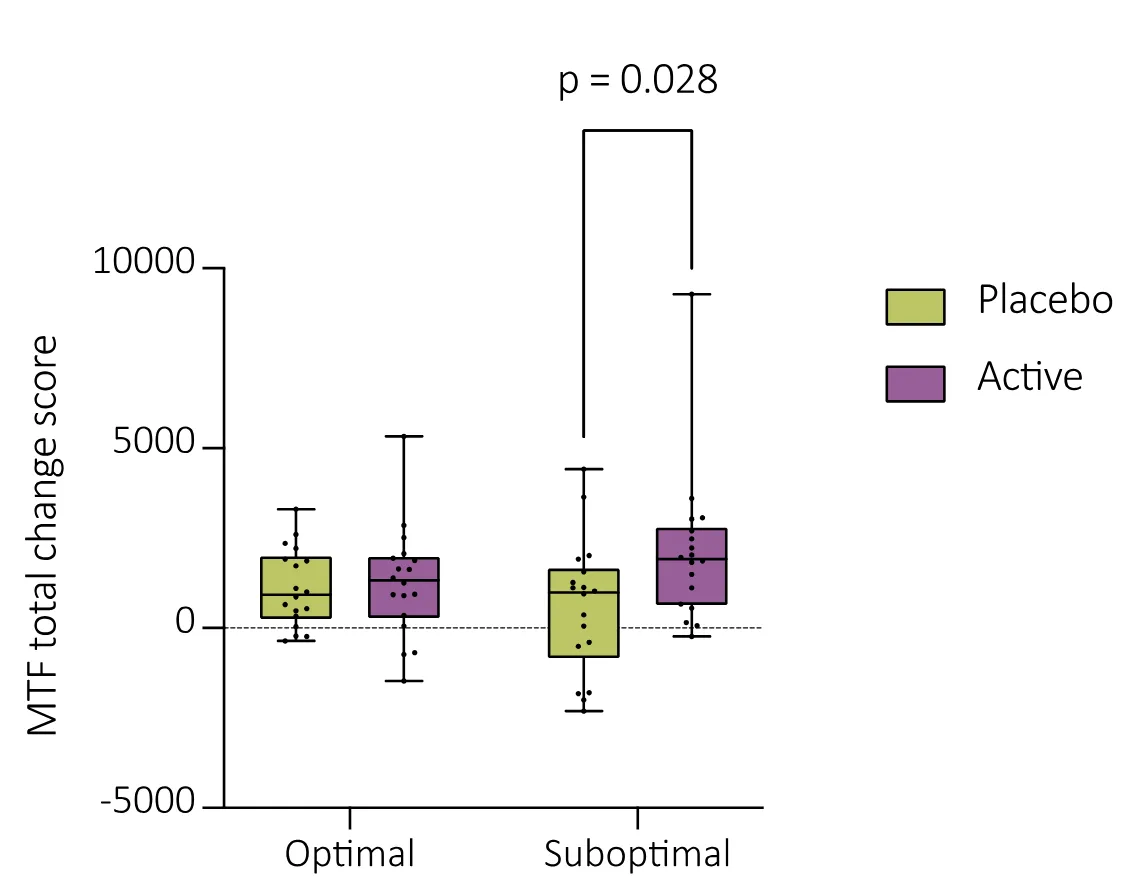Ārepa: great minds drink alike? Or a storm in a drink bottle?
Brad MacClure - 30th September 2024
A few days ago I tuned eight pianos in one day. That has nothing to do with this article. I just wanted to let you know that, because I think it’s impressive. The pianos were all in one location, at a venue/arts complex in Queenstown, and all regulars, and of high quality, so maybe not that impressive I guess, but it was a long day. While there, a kind lady who worked in the complex handed me a bottle of Ārepa. Reading the label on the glass bottle, I instantly sensed that a deep dive might be in order.

You can see from the label it says “Brain Drink” and “Designed and tested by neuroscientists… 100% natural” so there are appeals to authority and nature right out of the gate. (I’m drinking it right now in hopes it will help me write this article. It doesn’t seem to be working.) Further, on the back label it says the ingredients are “clinically researched” and claims to help brain function by “reducing tiredness” with the help of vitamin C. It then repeats the old trope: “…as part of a healthy and varied diet.” We’re not off to a good start, I’m afraid.
Weasel words like “as part of a healthy and varied diet” and appeals to nature are always a red flag. But what of the “Designed and tested by neuroscientists” claim? Is this true? It’s a bit hard to tell from the website how true this is. They’ve employed a professor Andrew Scholey as their “Chief Science Officer”, and it seems like his weight is behind the “designed by” claim, however they don’t actually claim outright that he is the “designer”. Honestly, it looks a lot like he’s on staff to add credibility to the product, but we can’t know for sure. I will say that I don’t think Psychopharmacology (his PhD subject) is the same thing as Nutrition. This product is not a drug, much less a psychoactive one.
The company points to studies that have been done using their product. There are thirteen in total, with some still underway, some completed but not peer reviewed, and four studies that have actually been peer reviewed and published. Let’s have a look at the ones I can access.
The impact of Ārepa, a blackcurrant-based nootropic drink, on neurocognitive function
This study, by Jessica R Miller, is a secondary analysis of a LINK study, called “The impact of Ārepa, a blackcurrant-based nootropic drink, on neurocognitive function”.
It seems like a well designed, properly placebo controlled RCT. The subjects were all healthy females, which is a small generalisability issue. I read right through it, but won’t get bogged down in the details here. Nothing jumped out as being terrible in it, but really the abstract tells you all you need to know. A cool thing about the study is they had an ‘optimal’ diet group, and a ‘suboptimal’ diet group. Basically, spoiler alert (you probably guessed it!), you don’t need a dietary supplement if you eat properly! Wow, shocking!
There’s a positive effect shown overall to taking Ārepa, but when you break it apart the effect is actually only in the ‘suboptimal’ diet group. The effect goes away completely for the ‘optimal’ group, that is the group with a decent diet!
From the abstract:
“There was a trend towards improvements in the MTF total (+1689) and letter search scores (+955) following four weeks of daily Ārepa supplementation (p= 0.052 and 0.057, respectively), indicating improvements in working memory and executive function. When investigating the effect of baseline diet quality on intervention responses, we found that these benefits to MTF total and letter search scores were driven by participants in the ‘sub-optimal’ diet group (p= 0.028 and 0.022, respectively), while no benefit was observed in the ‘optimal’ diet group (p= 0.774 and 0.921, respectively).”
The figures below are taken from the study. It looks like a barely significant result (p=0.052), until you separate the groups, then: no result for the optimal group, and a comfortable statistically significant result for the suboptimal group.


On their website there’s a lot of ‘you need this and that for your brain to work’ and ‘we have this and that in our product’. You’re supposed to connect the dots I suppose, but lines like “as part of a healthy and varied diet” don’t sell it to skeptics, right?
What strikes me as different with this company is not the appeals to nature and authority, or even the sciency sounding words on the flashy website, but the actual appeals to science.
We’re used to seeing things like “clinically proven” and “scientists say…”, but they claim to actually be backed by scientific studies and have neuroscientists on staff.
Improving Mental Performance in an Athletic Population with the Use of Ārepa®, a Blackcurrant Based Nootropic Drink: A Randomized Control Trial
This trial, in all female rugby league players, showed perhaps more promising results, but had what seemed to me to be a slightly looser methodology with regard to the food intake monitoring, so in my opinion lacked the control to determine the differences in diet influences mentioned above. Also it appears the average diet intake overall was not as good, so that probably skewed the result in favour of a positive effect, since they were, on average, supplementing an insufficient diet, and the results were only published as averages.
Ozone?
Two more trials the company points to are about ozone exposure and respiratory issues in cyclists, so not about brain function at all, and not generalisable to Ārepa.
- Effects of 7-day polyphenol powder supplementation on cycling performance and lung function in an ozone-polluted environment
- The Effects of Polyphenol Supplementation on BDNF, Cytokines and Cognition in Trained Male Cyclists following Acute Ozone Exposure during High-Intensity Cycling
Summary
So that’s it. I think at this stage we don’t have a reason to change from the wisdom that a healthy (and as they say) varied diet is all you need. If you don’t eat properly, then this product may help, but bear in mind that at around $6.20 for 300ml (it’s a subscription model, you’re supposed to spend about $116-$140 per month), it’s actually cheaper to just eat properly! There’s irony in the fact that, although they tell you it works best as part of a ‘healthy varied diet’, in fact the healthy diet group showed no improvement! There’s also irony in the name: “Ārepa” is Maori for “alpha”, and alpha is the greek letter scientists use to signify statistical significance! Oops! Oh, and, by the way, what does it taste like? Hmmm, remember when your mum used to water down Ribena with a bit of soda water?